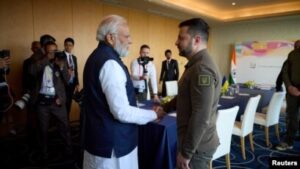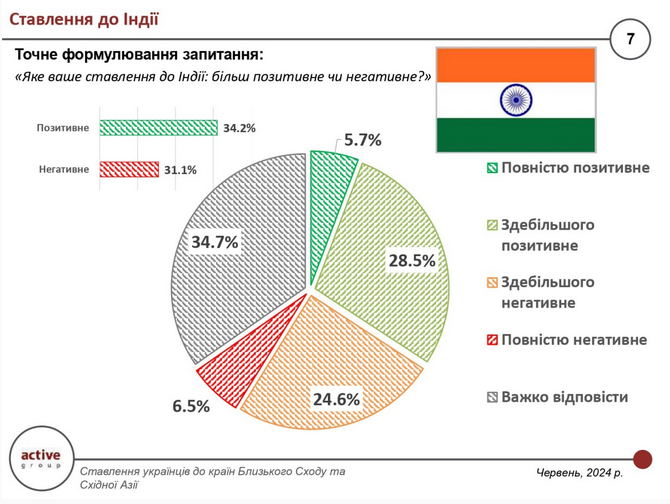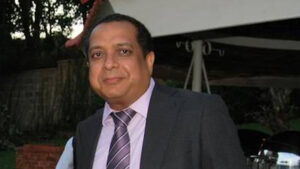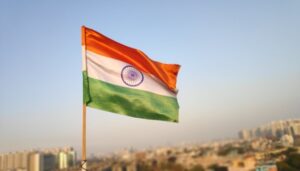
India imported $3.13 billion worth of gold in July 2024, the country’s Ministry of Commerce and Industry said. This is 11% less than in July last year, but 2% more than in June this year.
Demand for gold in India both this year (the season of purchases – August-December), and in the long term can grow significantly due to the reduction of customs duties, says World Gold Council analyst Kavita Chako. Duties on gold have been reduced from 15% to 6%, on gold doré – from 14.35% to 5.35% – such a sharp decline has never been. Moreover, for almost 11 years the duties have never fallen below 10%. The changes came into force on July 24.
In total for 7 months of the year gold imports to India amounted to $22.234 billion, which is 12% more than the result of the corresponding period last year. India is one of the largest consumers of gold in the world, practically not producing it itself.

Indian Prime Minister Narendra Modi is expected to pay a historic visit to Ukraine in a few weeks, according to Sidhant Sibal, chief diplomatic correspondent for the Indian publishing house WION, citing his own sources in New Delhi. This visit, which is currently being prepared, is tentatively scheduled for the third week of August, probably on the 23rd.
Earlier this year, Ukrainian President Volodymyr Zelenskyy personally invited the Indian leader to visit the country during a phone conversation. Since then, the two countries have been holding active high-level talks. Indian Foreign Minister Subramanyam Jaishankar and his Ukrainian counterpart Dmytro Kuleba discussed bilateral relations. National security advisors from both countries, Ajit Doval from India and Andriy Yermak from Ukraine, also held talks.
In June, Prime Minister Modi met with President Zelenskyy on the sidelines of the G7 summit in Italy. Discussing the current situation in Ukraine, the Indian leader emphasized the need for dialogue and diplomacy, stressing that India is ready to support a peaceful resolution of the conflict.
This visit will be the first personal contact between the two leaders since the beginning of the war, outside the format of the G7 summits. Prime Minister Modi may travel to Ukraine via Poland, and is likely to hold talks with the Polish leadership before traveling to Kyiv.
Prime Minister Modi’s visit to Ukraine comes almost two months after he traveled to Russia for the annual Russian summit, during which the war in Ukraine was also discussed. During his talks with Putin, Prime Minister Modi expressed regret over the deaths of innocent people and children at the Okhmatdyt hospital.

Active Group and Experts Club have conducted a joint study on the attitudes of Ukrainians towards the countries of East Asia and the Middle East. The study was presented at the Interfax-Ukraine news agency in June 2024. The research was presented by Maksym Urakin and Oleksandr Poznyi. The results of the study are as follows:

The results of the survey are as follows:
Completely positive – 5.7
Mostly positive – 28.5
Mostly negative – 24.6
Completely negative – 6.5
Difficult to answer – 34.7%.
Positive – Negative – 3.1
On January 17, 1992, diplomatic relations between Ukraine and India were established
The joint research by Active Group and Experts Club on the attitudes of Ukrainians towards the countries of East Asia and the Middle East was conducted in April-May 2024. It covers such countries as Turkey, Iran, Israel, Egypt, Jordan, Saudi Arabia, UAE, Afghanistan, Pakistan, Azerbaijan, Uzbekistan, Turkmenistan, Kyrgyzstan, Tajikistan, Kazakhstan, Georgia, Armenia, India, China, Republic of Korea, DPRK, Japan, Vietnam, Indonesia, Syria, and Iraq. Full information on the research is available on the website of the Club of Experts at

Shri Ravi Shankar has been appointed as the new Ambassador of India to Ukraine on May 30, 2024. This was reported the website of the Ministry of Foreign Affairs of India.
Shri Ravi Shankar, who is currently working as an additional secretary in the Ministry, has previously held positions in the Indian government. He is expected to take up his duties in the near future.
India recognized Ukraine’s independence on December 26, 1991. On January 17, 1992, diplomatic relations between Ukraine and India were established.
Source: mea.gov.in

A heat wave in Pakistan has triggered temporary school closures and power problems, the Associated Press reported Tuesday.
“The debilitating heat wave will continue this month,” said Zaheer Ahmed Babar, a senior member of Pakistan’s Meteorological Department. Temperatures could exceed the monthly norm by six degrees Celsius, he said. It will exceed 40 degrees Celsius in many parts of the country this week.
In Punjab, the country’s most populous province, all schools will not be open this week because of the heat wave, and about 18 million students will stay at home. Some parts of the country are experiencing hours-long power cuts.
On Monday, it was reported that the abnormal heat wave is also observed in neighboring India. In Delhi and areas adjacent to the Indian capital, temperatures have exceeded the 47 degrees Celsius mark in the last 24 hours. Authorities have declared a red, maximum, level of weather danger in the capital, as well as in the states of Rajasthan, Punjab, Uttar Pradesh and Haryana, where the previous day the temperature ranged from 43 to 46 degrees Celsius.
The heat wave is expected to continue in India for at least five more days.

India will participate in the upcoming Peace Summit to be held on June 15-16 in Switzerland, Indian Prime Minister Narendra Modi has said, The Siasat Daily reports.
“India will participate in all important summits that advance the agenda of global peace, security and development,” Modi said, as quoted by The Siasat Daily.
According to the newspaper, this refers to the G7 summit, which will be held in Italy on June 13-15, as well as the Global Peace Summit, which will be held on June 15-16 in Switzerland.
Modi noted that India will “be the voice of the Global South” at these summits to shape the global discourse and promote a vision of people-centered development and a prosperous and peaceful world. “The level of participation will depend on time, logistics and concurrent commitments,” said the Indian Prime Minister in response to a question about whether he would attend the meetings. According to Modi, India’s invitations to these summits demonstrate the importance of the country and the weight of its contribution to international affairs.
Source: https://www.siasat.com/india-to-participate-in-g-7-ukraine-peace-summits-pm-modi-3029281/